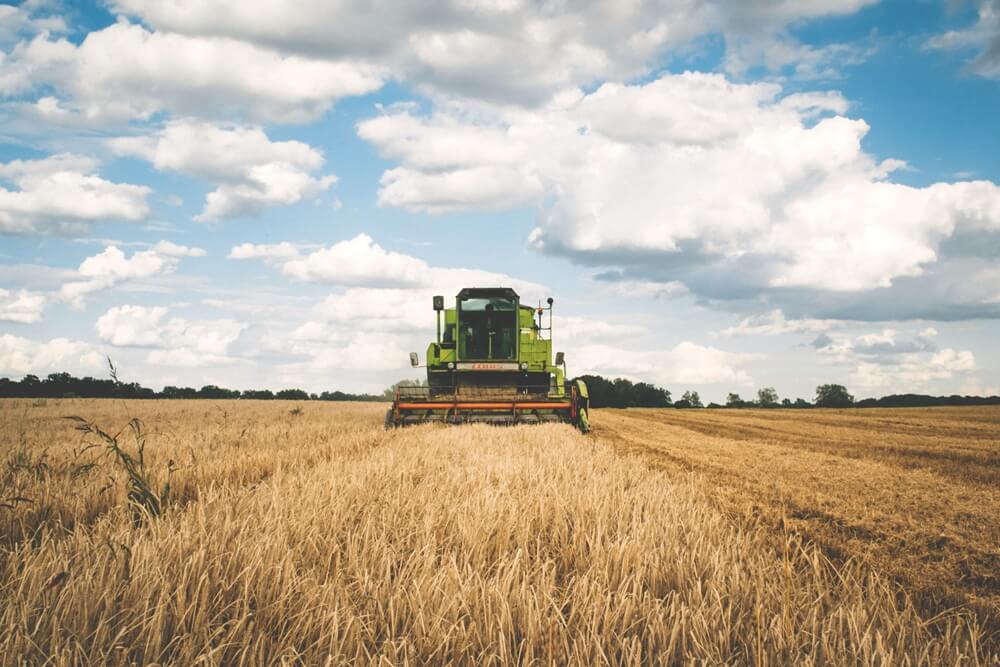Internet of Things, or IoT, is a familiar term, which stands for the connection between “things” through the internet. IoT opens up the doors to the bright future where technology makes your life easier than ever. Day by day, our lives are connected more to the internet via devices, applications or services which is the result of non-stop developing in every industry.
The Food and Beverage (F&B) industry has been an early adopter of IoT. F&B businesses are under pressure to keep themselves up-to-date with the trend and having an investment in advanced technologies. The transition is overwhelming for those who aren’t ready yet. For businesses that don’t know where to begin, this blog shall suggest you with steps to take and what you’ll gain with the integration of IoT.
Read more: Back to Basics - Internet of Things (IoT) Explained

From the farms
Yield improvement is the highest priority for farmers since cost pressures start to rise and trade wars and tariffs get complicated. Starting from the farm itself, farmers are now utilising sensors to keep track of the moisture level of the soil, thus having an appropriate response. Sensors allow farmers to optimise irrigation, switch between locations or even shutting off if needed. All are done automatically with the purpose of maximising the crop yield per acre.
The ability to supervise soil condition, crop maturity, and even the presence of insects or fungus let users decide when and where fertilisation is needed. Additionally, integrating livestock into barns also helps to monitor the herd’s weight, health, and productivity. Plus, farmers can set up timers and sensors to automatically feed, control the herd’s diet, feeding cycles and provide assistance in breeding processes.
Read more: Why most Digital Transformation Projects Fail
Equipment has been and continues to bring in huge advantages for farmers, especially when implemented correctly with advanced technology. For example: Utilising GPS tracking to help plant straight rows in the field or to optimise the position of irrigation equipment.
Remotely control and observation is made possible with drones, especially to monitor field or building conditions. Embedding smart sensors to farm machinery allow you to take control from anywhere, anytime, eventually extending the lifecycle of your equipment. In other words, with smart maintenance, farmers are able to monitor machine performance and detect early warning signs of equipment needing preventive service, which helps save a large amount of capital investments.
Read more: 7 Key Benefits of Adopting Cloud Computing in the Enterprise
However, gained insights is not fully beneficial until they are integrated into systems to analyse and result in predictive analytics for future decisions and actions. Logically, data-based evaluation helps utilise opportunities and maximise performance as a whole. When all parts of the system function effectively, early warning signs of malfunction can be spotted and prevented.
To the customer’s table
From the consumer’s perspective, IoT application allows them to access detailed information of thousands of products. SmartLabel – an initiative by the Grocery Manufacturers Associations (GMA) is an example of applying sensor technologies and the advantages come along with it. Volumes of data from all types of sources are captured, analysed and transmitted to provide consumers all the information they need.
Implementing smart technology to improve product visibility has been a thing since QR code is applied. Tracking product’s history, ingredients, product’s history advisories and safe handling instructions and so on can be queried effortlessly by scanning the QR code.
Read more: [Infographic] 4 Steps to Automate Enterprise Data Management
The future is full of possibilities where consumers can access products’ information – details that never all fit on a label like the ingredients’ origin, how old each ingredient was before utilised, and a whole host of additional information points.
On the other hand, FSMA (food safety modernisation act) is the process of planning to prevent potential issues for quality and safety in products. IoT provides analysed data and insights and helps to spot potential problems before they take effect. Being able to take steps ahead is a prerequisite, as manufacturers are able to know exactly which products are suspected to cause issues and isolate them – while releasing all other products with confidence.
Read more: Digital Transformation - a 7-Step Road Map for Success

IoT’s benefits when it comes to the plant floor– where gathered insights are highly valuable with information like products quality and operation status. Sensors and deep analytics enhance the connectivity between people and machines. Ultimately, businesses can gather crucial predictions, drive quality improvements, boost efficiency, and accelerate time to market for new offerings.
The workforce proficiency can also be improved with IoT technologies. As staff efficiency is the key to the productivity of the workflow. High tech wearables have been implemented in production plants. For example, maintenance workers are given high-tech glasses that are not only able to provide protection but also assistance in how to repair/ maintain a piece of equipment.
Read more: How Can Cloud Computing Benefit Small and Medium-sized Enterprises?
To fully enable IoT in the Food and Beverage industry, it is needed for businesses to stretch out the “things” being connected to also including processes from the fields to production plants, from machinery to the workforce. The advantages offered when implementing IoT is undeniably inevitable, boosting product quality and compliance, reaching its full farm-to-fork potential.
If you are interested in Internet of Things or Cloud Computing, make sure you are subscribed to our blog for further information about this subject!
 English
English  Vietnamese
Vietnamese 

